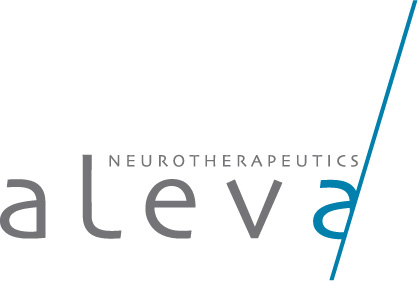News
Company News: Aleva Neurotherapeutics Announces Promising Clinical Data on Directional Deep Brain Stimulation with directSTIM™

– Data Presented at the 2013 Quadrennial Meeting of the World Society for Stereotactic and Functional Neurosurgery (WSSFN) –
Tokyo, Japan, May 30, 2013 – Aleva Neurotherapeutics, a company developing next-generation implants for Deep Brain Stimulation (DBS) in major neurological indications such as Parkinson´s disease or depression, today announced interim clinical data of an interventional, intraoperative pilot study of its novel directSTIM™ electrode. Data were presented at the 2013 Quadrennial Meeting of the World Society for Stereotactic and Functional Neurosurgery (WSSFN) in Tokyo, Japan, on May 30.
In the ongoing pilot study, clinical investigators assessed the intraoperative clinical effect of directional stimulation using the directSTIM™ lead. It features two rings consisting of three independent electrodes each. The angular position of the electrodes allows stimulation at 0°, 120° and 240° directions. After assessment, directSTIM™ was removed and replaced by a classical, ring-shaped permanent DBS lead.
The data reported in Tokyo are based on 5 males with Parkinson Disease, which underwent Subthalamic Nucleus (STN) DBS, and 2 males with essential tremor, which underwent Ventral Intermediate Nucleus of the Thalamus (Vim) DBS. Directional stimulation was tested at the target determined for the permanent lead. The clinical investigators compared the therapeutic window (TW, defined as the electrical current threshold at which side effects occur minus the current threshold at which a significant therapeutic effect is observed) of directional and classical stimulation. Directional stimulation resulted in an improved therapeutic window in five of six patients (the ratio could not be measured in one of seven patients). No adverse event took place.
“This is a real breakthrough in the field of DBS. At present, DBS is carried out using ring-shaped electrodes,” said Claudio Pollo, MD, Head of Functional Neurosurgery at the University Hospital, Bern, Switzerland and Principal Investigator of the study. “This intraoperative study is the first to investigate the proof-of-concept of directional stimulation in humans. The increased therapeutic window demonstrated in the study suggests that directional stimulation is more selective for beneficial effects while avoiding side effects. Moreover, the observed side effects were consistent with what we expected given the anatomical structures surrounding the stimulated area.”
“We are very pleased with the data, as we have proof-of-concept in an intraoperative setting that directional stimulation is measurable and that it is different from classical stimulation,“ said Jean-Pierre Rosat, CEO of Aleva Neurotherapeutics. “This is very promising as it indicates that the effectiveness of DBS may be improved by our novel electrodes.”
Alain Dransart, Aleva’s Clinical and Regulatory Director, concluded: “We are delighted by the way the study is conducted and by the excellent collaboration with the investigators. The pilot study will be completed by the end of this year and we believe its results will pave the way for a future directSTIMTM chronic study.”
